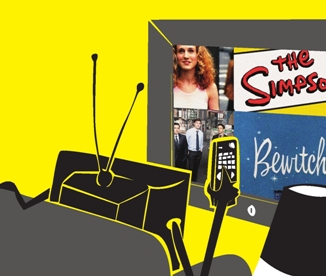Animated comedies teach us television

This doctoral thesis is an exploratory research project focused on prime time animated comedy, a television subgenre present in U.S. programming for more than 50 years, but still undefined.
The thesis broaches animated comedy from a historical perspective and analyzing the narrative aspects. This work examines its course by the American programming over the last five decades and it analyses its animated format, narrative structure, characters, settings...
Based on the analysis of five series belonging to this subgenre (The Simpsons [Fox, 1989-], King of the Hill [Fox, 1997-2009], Family Guy [Fox, 1999 -], American Dad! [Fox, 2005-] and The Cleveland Show [Fox, 2009-]), the study proves that prime time animated comedy is characterized by generic hybridity, self-reflexivity, and reference to other cultural products, a fact that turns it into the best example of hyperconscious television. This type of television is totally aware of its status as cultural product and its existence within a "semiotic-saturated culture", in which every story has already been told, and every character type has already been conceived. Thus, hyperconscious television abandons the pretense of originality and it opts, instead, to ironically comment on existing cultural forms and genres, from its own status as television.
Prime time animated comedy constantly refers to itself and feeds its story with the constant evocation of other genres and formats. In this way, the number of references in every episode to the television context is surprising and demands the elaboration of a typology and a model of analysis. This typology and model are structured from the type of television text (fiction and entertainment, information, advertising and self-references) and the degree of difficulty that the references represent to the viewer.
The research concludes that prime time animated comedies are television commentators, interpreters, analysts and critics, as well as pedagogical tools with which instruct on the medium.
References
"Televisión hiperconsciente: las comedias animadas de prime time", Beatriz Gomez doctoral dissertation presented on the 6 novembre 2012 in the Department of Journalism and Communications Studies.


